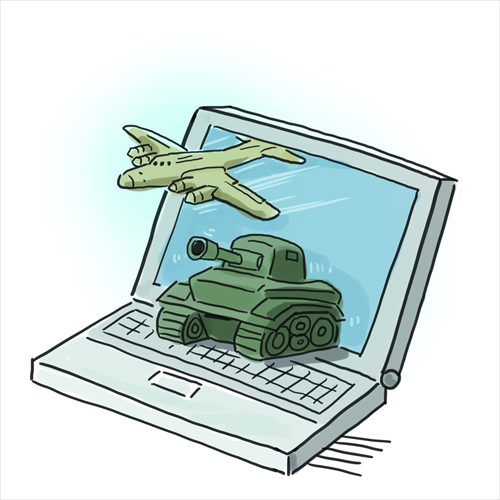"We are in an information war, and we are losing that war. I'll be very blunt in myassessment," said former US secretary of state Hillary Clinton, once commenting on thenew wave of information and media warfare.
Her indication was clearly toward the rise of state-funded news channels such as CCTV,Press TV and Russia Today.
What makes it more interesting is that the aforementioned networks are based in theGlobal East, and they come under heavy criticism for being propaganda networks due tothe West's disagreements with Iran, China and Russia.
So much so that if you, as a journalist, have worked for RT and Press TV in particular, youcarry a black spot on your CV. Such has been the influence of Western media over thecommon news consumers and job market in creating a negative image of non-Western-owned news networks.
Above all, should we expect a completely objective media outlet in this modern age?
Mediastan, a documentary produced by Wikileaks and its founder Julian Assange in 2013,beautifully sums up how modern media works with a particular bias and agenda,irrespective of its origin and ownership.
Although without flare or production intricacies, this documentary, made with a hand-held camera and trailing the journey of young journalists in Central Asia, explains howeven small states in the region are bound by limitations when it comes to publishingsensitive cables.
One of the high points of Mediastanwas the exposé of The New York Times and TheGuardian, generally perceived as among the most objective papers, on how theymanipulated Wikileaks cables to present the story with a certain agenda.
The term revolution has become so common that Western media was reporting everyevent in the Middle East, big or small, involving violent protests against the state asrevolutions.
The Free Syrian Army, which allied with terrorist outfits such as the Islamic State, was alsoinitially regarded as a revolutionary outfit, and thus it was deemed necessary to support it.
The term invasion in recent times became synonymous with the Russian moves inUkraine.
Invasion literally means an aggressive entry of troops of one country in another for thepurpose to liberate, establish control or conquer. But in the case of Ukraine, it is hard togive an objective opinion on Russia's military presence. The common media discourse,especially in the EU and the US, conveniently uses the term invasion to explain Russianactions.
With this loss and plurality of media voices and along with rise of alternative media, thetwo Western news networks are trying their best to focus on content used for maligningtheir adversaries, rather than reporting what needs to be reported.
A common saying goes that propaganda is only countered with propaganda. So if a countryfaces a constant propaganda bombardment, what options does it have? Obviously creatingits own means of countering that propaganda.


No comments:
Post a Comment